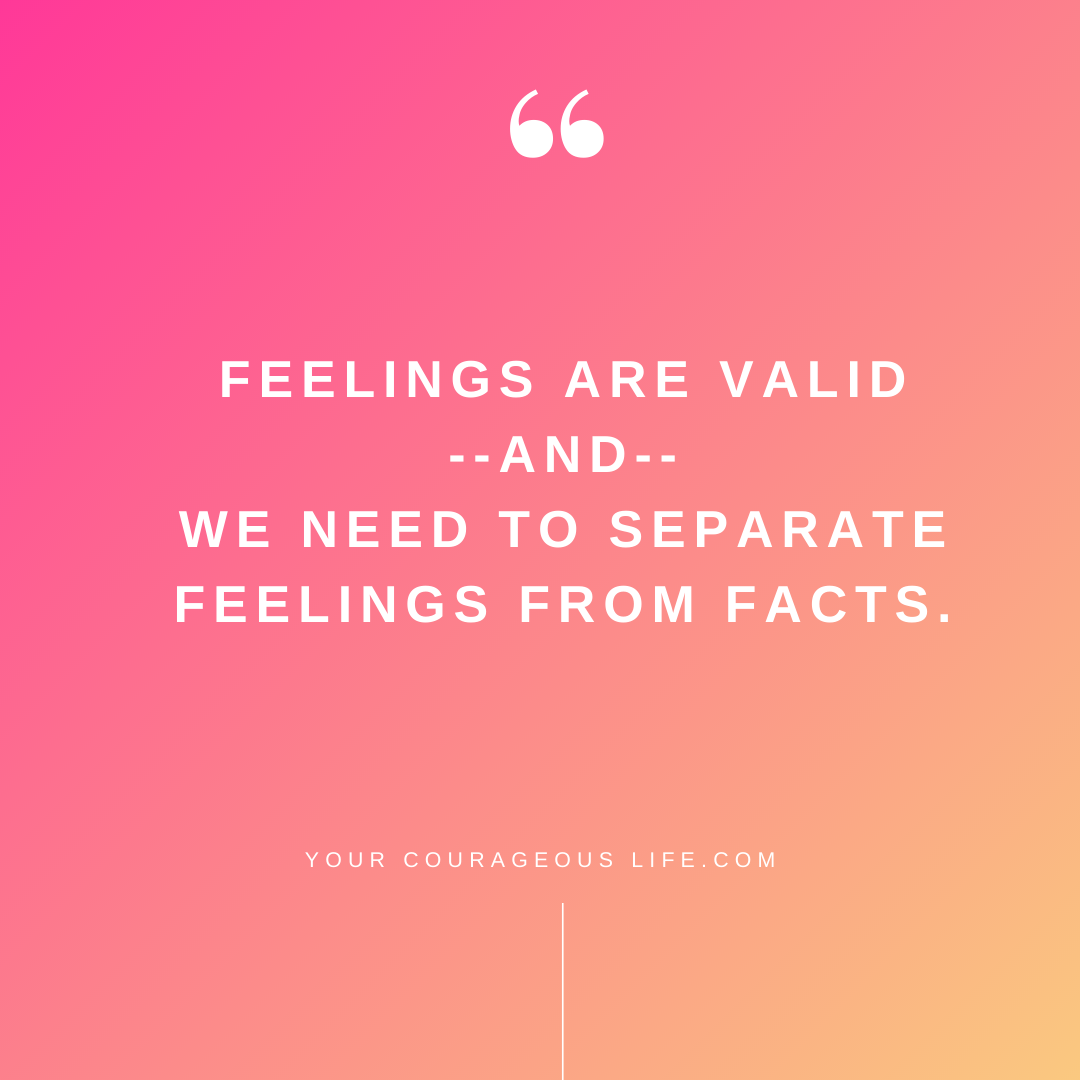Separating feelings from facts
Truth is subjective, not objective. My truth is different than your truth. “Truth” as we typically talk about it, is perspective.
We lose sight of this, all too easily—the fact that truth is subjective—when it comes to feelings. We assume that because we feel it, it must be true, when we need to be separating feelings from facts.
Just because you feel like you can’t, or feel like you’re a loser, or feel like life is too overwhelming–doesn’t mean that this is the truth.
It means that it’s entirely possible that you can, that you’re not a loser, or that life only seems overwhelming.
Just because you feel it’s true that someone is doing something to you, or feel it’s true that what they said means XYZ, or feel that they are to blame, doesn’t mean that that is the truth.
It’s entirely possible that they aren’t doing anything to you, that what they said is being filtered through your interpretation (and you’re misunderstanding! eep!), and that whatever they say isn’t “the truth,” anyway.
It’s important to separate feelings from facts.
Walking the Line
It’s a delicate dance to walk that line of acknowledging the truth of what we feel and giving that its proper legitimacy because it is, after all, what we feel—without projecting our truth onto the world. Projecting your truth onto the world means thinking that “that’s the way things are” just because you feel that that’s what they are, or that our interpretation of someone else’s behavior is accurately representing what they did.
On one level, yes, when you feel something, it’s the “truth.” It’s your world that you’re existing in, it’s what you know, and it matters that you feel what you feel. No one is invalidating that.
On another level? Not separating feelings from facts is destructive. It’s the most destructive force that I know in relationships (just because someone feels that you did them wrong, for instance, doesn’t mean that you actually did–and how many miscommunications and misunderstandings arise from that place?).
When we let feelings determine the truth to the point where we get self-righteous, when we get angry and lose it, when we are gossiping or judgmental, when you quit on a dream, when you get so overwhelmed that you hide out in front of the television or the internet–what’s really happening, there?
What’s happening is that you’re reacting to a feeling. You’re taking your feelings as facts to such a degree that it’s actually limiting you.
I claim everything that I feel. It’s my life experience. My feelings are, on some level, my truth. That’s valid.
But they aren’t the entire truth. What I feel isn’t an objective truth. My feelings aren’t your truth. They aren’t the world’s truth.
So as soon as you/I/we notice that we’re taking what we feel to the point where we accuse, blame, deny, criticize, judge?
Let’s get a truth check going. It’s time to separate feelings from facts.
If you don’t like someone else projecting that their “truth” in the world has to be your truth? Don’t force that onto someone else.

